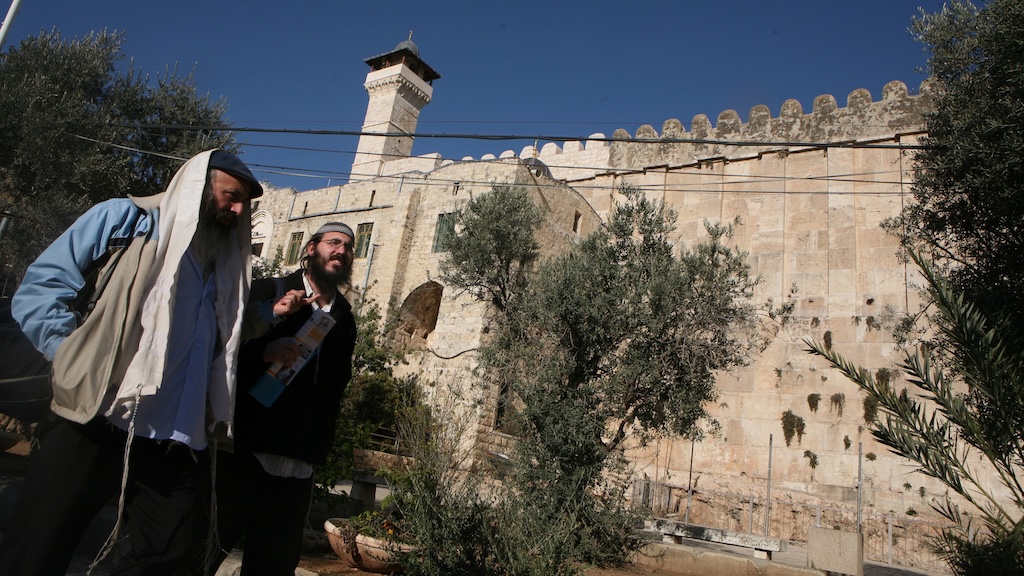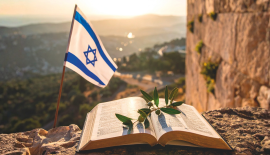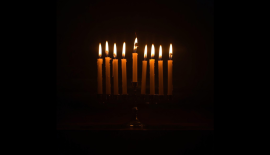The Promised Land
Let’s look at ‘The Promised Land’ from a biblical and prophetic perspective.
First of all: Who is the legitimate owner of the land? Is it Israel? No, it is God.
He tells Israel in Leviticus 25:23: “The land must not be sold permanently, because the land is Mine and you are but aliens and My tenants.” God owns the land, and it cannot be sold permanently to anyone else without His permission. The Lord God decided to give the Promised Land to the nation of Israel. He says in Psalm 105:8-11:
“He remembers His Covenant forever, the word He commanded, for a thousand generations, the Covenant He made with Abraham, the oath He swore to Isaac. He confirmed it to Jacob as a decree, to Israel as an everlasting Covenant: ‘To you I will give the land of Canaan as the portion you will inherit.’”
“God owns the Land of Israel, and it cannot be sold permanently to anyone else without His permission”
The land of Canaan certainly includes Jerusalem, Judea and Samaria (where important Biblical cities are located, like Hebron and Sichem).
But what about Gaza—is it part of the Promised Land? Yes, it is. Gaza is included in the land allotted to the tribe of Judah in Joshua 15. Zephaniah prophesies in chapter 2:2:4-7 that “Gaza will be abandoned and Ashkelon left in ruins”, but that “[i]t will belong to the remnant of the house of Judah; there they will find pasture. In the evening they will lie down in the houses of Ashkelon. The Lord their God will care for them; He will restore their fortunes.”
Although Israel left Gaza voluntarily in 2005, one-day it will again belong to Israel, to the tribe of Judah.
The Promised Land of Canaan also includes the area known in the Bible as ‘Bashan’, the land east of the Jordan River, now located partly in Jordan and partly in Syria. This is where two and a half tribes lived: Reuben, Gad and half of the tribe of Manasseh. Look at Numbers 21:33-35 and Deuteronomy 3:12-13; 29:7-8; 34:1-4.
The problem is not only the West Bank of the River Jordan – that has always been even the heartland of Israel—but also part of the eastside, the Eastbank of the River Jordan, today called the Hashemite Kingdom of Jordan.
“The problem is not only the West Bank of the River Jordan – always been the heartland of Israel—but also part of the Eastbank of the River Jordan”
You could say that Syria and the Hashemite Kingdom of Jordan today are occupying God’s land. The same goes for part of the undivided City of Jerusalem. While Israel unified the city after the June 1967 Six Day war, the Kingdom of Jordan currently
manages the Temple Mount in the heart of Jerusalem on behalf of the Muslim world. However, this is Mount Sion, of which the Lord God of Israel says in Psalm 132:13-14: “…For the Lord has chosen Zion, He has desired it for His dwelling: ‘This is My resting place for ever and ever; here I will sit enthroned, for I have desired it…’”.
One question remains. What about the Biblical rights of non-Jewish people living in the Promised Land of Israel? Does the Bible speak about them as well? Yes, it does. In Ezekiel 47:21-23 the Lord says:
“You are to distribute this land among yourselves according to the tribes of Israel. You are to allot it as an inheritance for yourselves and for the aliens who have settled among you and who have children. You are to consider them as native-born Israelites; along with you they are to be allotted an inheritance among the tribes of Israel. In whatever tribe the alien settles, there you are to give him his inheritance,” declares the Sovereign Lord.”
So civil rights for foreigners (non-Jews) living— maybe already for centuries—in the Promised Land of Israel? Yes! But an independent Palestinian State on the Land that God Promised to Israel? No. That is a bridge too far.





